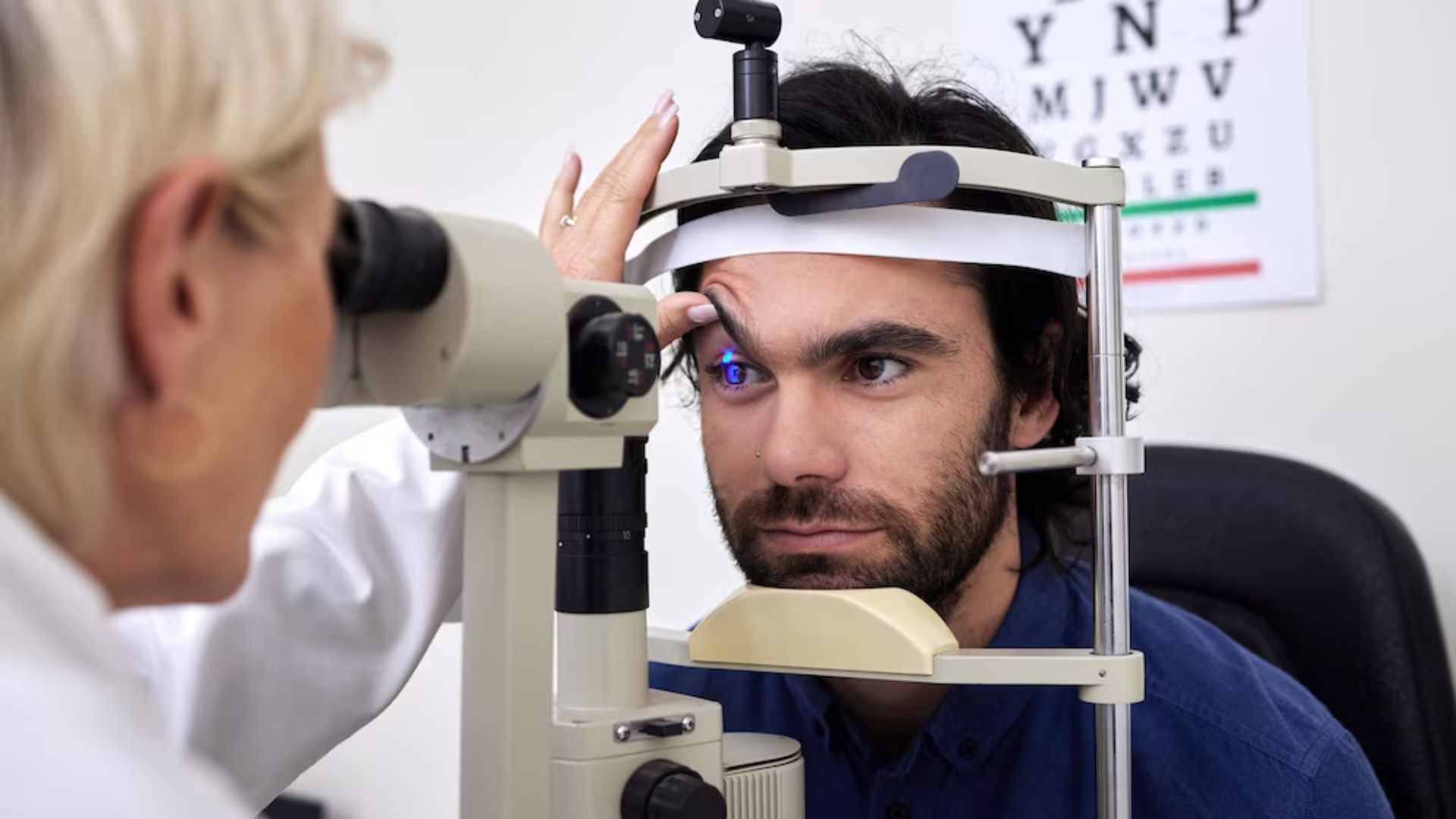Post Preview
Key Takeaways:
- Routine eye exams are crucial for the early diagnosis and treatment of eye disorders and other general health concerns.
- Symptoms of non-eye-related conditions, including diabetes and hypertension, can be detected during an eye checkup.
- By being aware of the steps involved in an eye exam, you may demystify the process and promote routine examinations.
Table of Contents:
- The Role of Eye Exams in Preventative Healthcare
- Components of a Comprehensive Eye Exam
- Detecting Eye Disorders Early
- Eye Exams and General Health
- How Often Should You Have an Eye Exam?
- Benefits Beyond Eye Health
Eye examinations are crucial to preventative healthcare because they allow eye care providers to spot early indicators of vision issues and underlying medical diseases. They proactively safeguard your sight and detect issues that may not be immediately noticeable. Maintaining eye health and general well-being requires routine eye exams. Visiting a family eye care center in Harrisburg, PA, or your local area can offer comprehensive insights into your eyes’ health and help detect problems early, providing a chance for prompt treatment. Regular attendance can be promoted, and anxiety can be reduced by knowing what to anticipate during these visits.
The Role of Eye Exams in Preventative Healthcare
Eye exams play a critical role in preventative healthcare. They help optometrists and ophthalmologists detect visual impairments and diseases that could affect your sight and overall health. By identifying issues early, treatments can be implemented more effectively. These exams should be a regular part of your overall healthcare routine, similar to annual physicals or dental check-ups, ensuring that your eye health remains robust.
Components of a Comprehensive Eye Exam
A thorough eye exam consists of a number of tests and evaluations to measure different elements of vision and eye health. A visual acuity test measures your ability to see at different distances. This is usually followed by a refraction assessment to determine if you need prescription lenses. Eye function tests evaluate coordination and focus, while a slit-lamp examination inspects the structures of your eye under magnification. According to the CDC, these comprehensive tests ensure your eyes function correctly.
Detecting Eye Disorders Early
Regular eye exams are instrumental in the early detection of eye disorders such as glaucoma, macular degeneration, and diabetic retinopathy. Early stages of these conditions are often present without noticeable symptoms, making regular visits essential for early intervention and management. Discovering potential issues before they progress can greatly increase the success of treatments and preserve vision.
Eye Exams and General Health
Examining your eyes might tell more than simply how well your vision is doing. They can highlight signs of non-eye-related health issues such as high blood pressure, high cholesterol, and diabetes. Your retina’s capillaries are sensitive to blood pressure and blood sugar variations. Regular eye exams provide a window to your broader health, allowing you to address issues that might require medical attention. Collaborating data from reputable sources shows that a significant number of cases of hypertension or diabetes may first be detected through an eye examination.
How Often Should You Have an Eye Exam?
Age, risk factors, and whether you wear glasses or contact lenses are some of the variables that affect how frequently you need eye checkups. Adults should typically undergo eye exams every two years, but individuals who are over 60 or have risk factors like diabetes may require yearly examinations. Children, particularly those with existing vision problems, should also have regular exams to ensure their eyes develop correctly and any necessary corrections are made promptly.
Benefits Beyond Eye Health
Eye exams provide benefits that extend beyond checking your vision and eye health. They offer peace of mind, knowing that you’re actively participating in protecting your vision and health. Regular check-ups can prevent small issues from becoming larger problems, saving time, discomfort, and cost in the future. It’s a preventive measure that enhances your overall quality of life.

